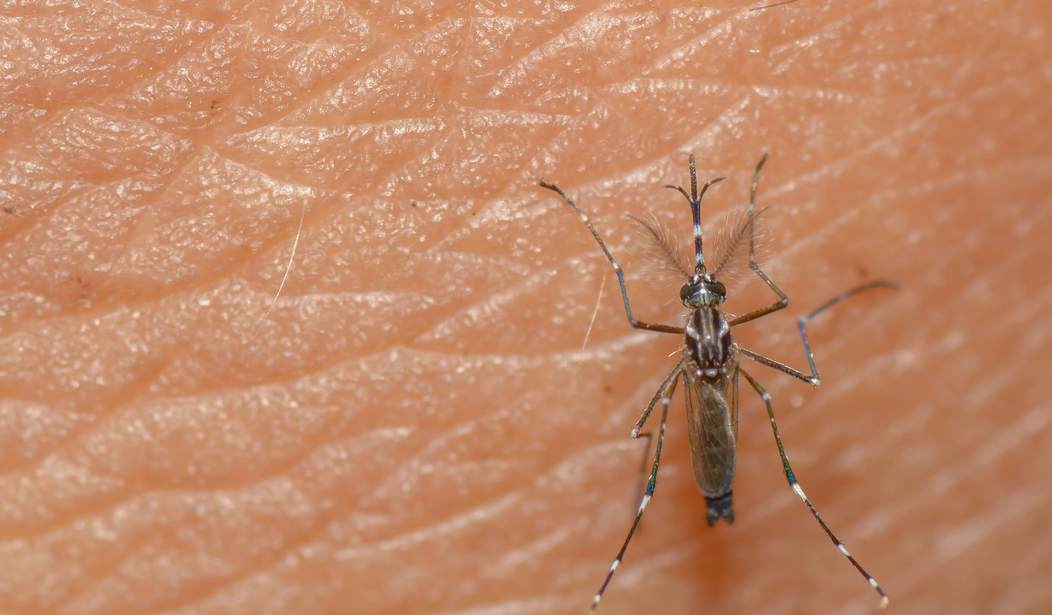A director at the Centers for Disease Control and Prevention told reporters at today’s White House briefing that the Zika virus “is not something that will change our day-to-day life” for “the average American,” but acknowledged that detecting the spread of the mosquito-borne virus won’t be easy.
Dr. Anne Schuchat, who leads the CDC’s National Center of Immunization and Respiratory Diseases, said officials “are are working 24/7 to understand this virus,” but preventing its spread “will not be easy because the mosquito that spreads Zika virus is an aggressive daytime biter.”
“It lives outside and inside the home, and it can be pretty hard to control it,” she said. “…We’re working on — with all of the states and local areas on surveillance, reporting. We’ve made this disease nationally notifiable. We’ve shipped out laboratory diagnostic tests so that states can recognize this, and we’ve issued a number of guidances, not just for travel, but guidances for health care workers so they know how to take care of women who may have been exposed to the virus and how to counsel them about things like sex during pregnancy.”
The Pan American Health Organization has identified countries and territories in the Americas with local Zika transmission.
Dr. Anthony Fauci, director of the National Institute of Allergy and Infectious Diseases at the National Institutes of Health, said that in addition to “classic” vector control — insecticides, larvicides, cleaning up the environment — they’re looking into “some relatively novel approaches” to prevent spread: “genetic manipulation of mosquitoes, infecting mosquitoes with certain bacteria which prevent them to be able to transmit this virus.”
Fauci said officials also need “a very specific diagnostic to tell a woman, particularly who is pregnant, have you been infected with Zika or not.”
The virus has led to a spike in microcephaly, babies born with abnormally small heads, in affected regions.
Fauci also expressed optimism about vaccine development, noting Zika is “what we call a flavivirus, a certain class of viruses, and we have successfully developed vaccines against flaviviruses like Yellow Fever, like Dengue.”
He added they’re “unlikely to have a vaccine that’s widely available for a few years but we certainly can get the initial steps.”
Schuchat said while they think the majority of cases will be spread through mosquito bites, they acknowledged the case of sexual transmission through a person in Dallas who had traveled to an affected country and “are learning about other potential roots” though “it’s really too early to know whether the detection in urine or saliva is going to be important.”
“Travel to Zika-affected areas is very common among Americans, and we don’t think that needs to stop,” she said. “We do think it’s important for people who are pregnant or may be pregnant to be aware of the risks and for their sexual partners to be aware of the risk as well. So we’re not canceling spring break, we’re telling people who are pregnant, you know, you may not want to go.”
Fauci noted the “astounding” number of travelers to and from the affected region — some 30 million — “and that really relates to the issue that was asked about quarantine and things like that.”
White House press secretary Josh Earnest said Congress should act quickly to approve $1.8 billion in emergency funding for fighting Zika.
“This sort of falls in the category of things that shouldn’t break down along party lines, Democrats and Republicans should reasonably understand that resources to confront a public health challenge like this is something that merits a serious response from the U.S. government,” Earnest said. “The United States Congress has an important role to play, and we hope that they’ll act quickly.”
The Senate Committee on Health, Education, Labor and Pensions has scheduled a Zika hearing for Feb. 24. The Department of Health and Human Services has been asked to testify.









Join the conversation as a VIP Member